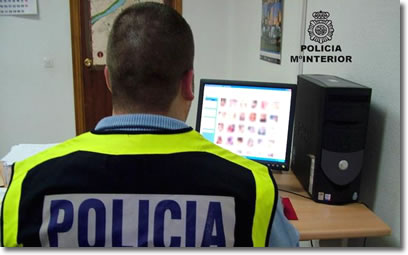We know that on the Internet you can find perverse contents of all kinds, such as information for manufacturing explosives, promoting the radicalization of terrorists or for making weapons with 3D printers. But one of the most striking, just to show the extent to which human degeneration arrives, is that of pedophilia.
The traffic of images and videos showing sexual content of and with minors is, apparently, much more common than we might think. In a police operation carried out in Spain last February a large number of people were arrested who shared, stored and even created this type of content.

After a complex police investigation, 40 men were arrested, many of them with a high technical profile, among whom are professors, engineers, public employees or self-employed, unemployed and retired. The arrests have taken place in different Spanish cities, spread practically throughout the country.
The exchanges of child pornography were carried out through peer to peer (P2P) services. In addition, they used sophisticated programs for deleting files as well as Internet browsers that use the well-known deep or dark web, hardly traceable by the Police.
In Córdoba, one of the detainees made use of a wide-range WiFi antenna that he had installed on his roof. With it, he managed to connect to the Wi-Fi networks of his neighbors, even far away, to carry out file exchanges, which makes police investigations even more difficult. Remember that we must protect our WiFi network to prevent outsiders from connecting and being able to carry out this type of action.
According to the note issued by the Police, some of the pedophile records found would be classified as extremely serious according to the categorization established by Interpol’s Baseline project.
One of the detainees in Alicante, in addition to distributing this material on the Internet, harassed minors to get images of sexual content (what we know as child grooming), which he subsequently edited and uploaded to the Internet. Four girls, victims of sexual harassment, have been identified.
During the operation, they made 42 house searches throughout Spain, in which numerous laptops, more than 100 hard drives, compact discs and DVDs were intervened, in which gigas of photographs and videos related to pedophilia were stored.
As “normal” Internet users, we can do little to help the Police in their fight against the trafficking of these pederast files. If on any occasion we download one of these files or discover any source of them, we have the obligation to inform the police authorities. Remember that although we unintentionally download it, we may be sharing it at the same time, which would be considered a crime by the Police.
